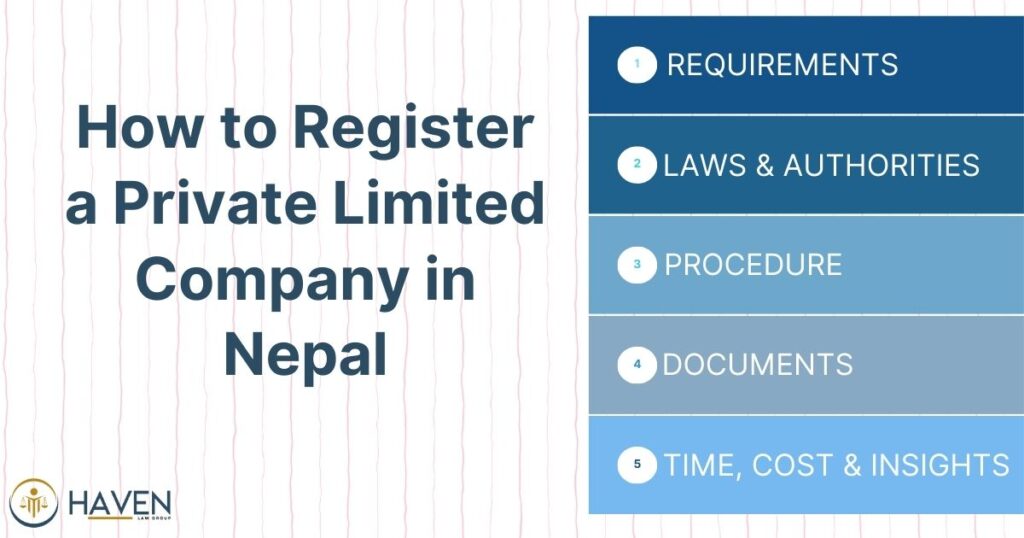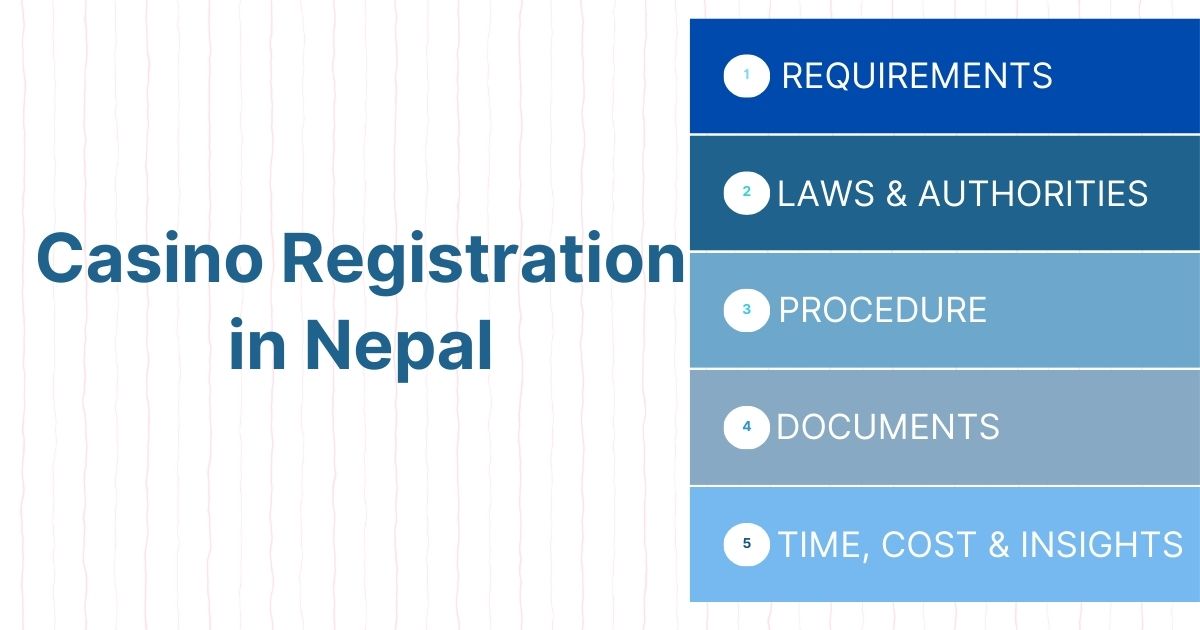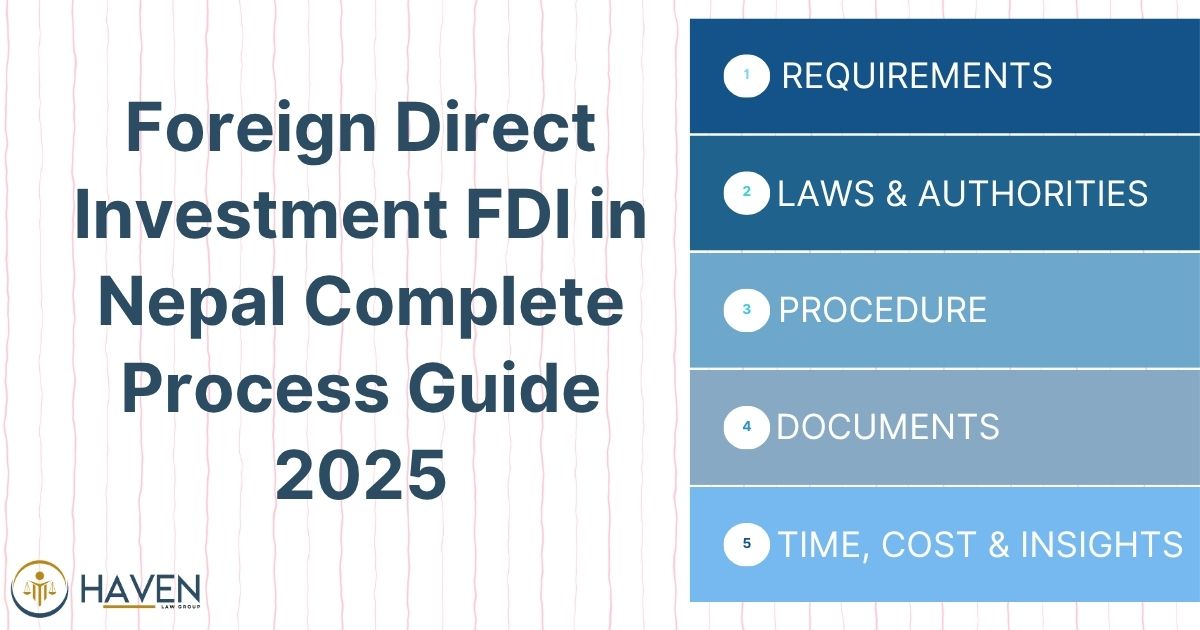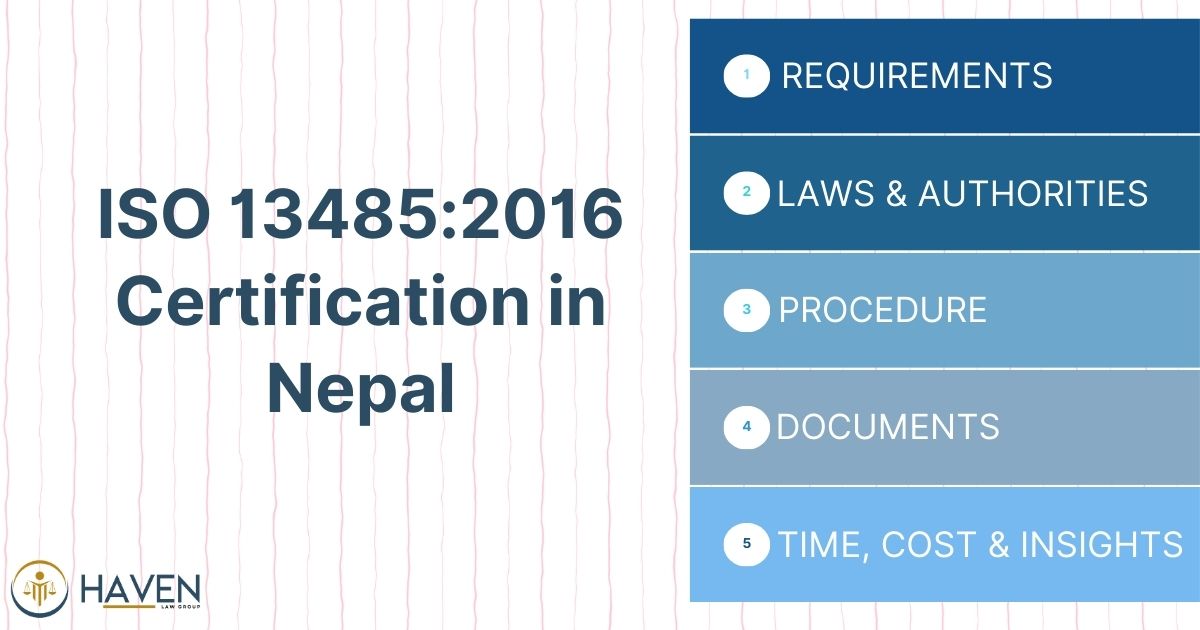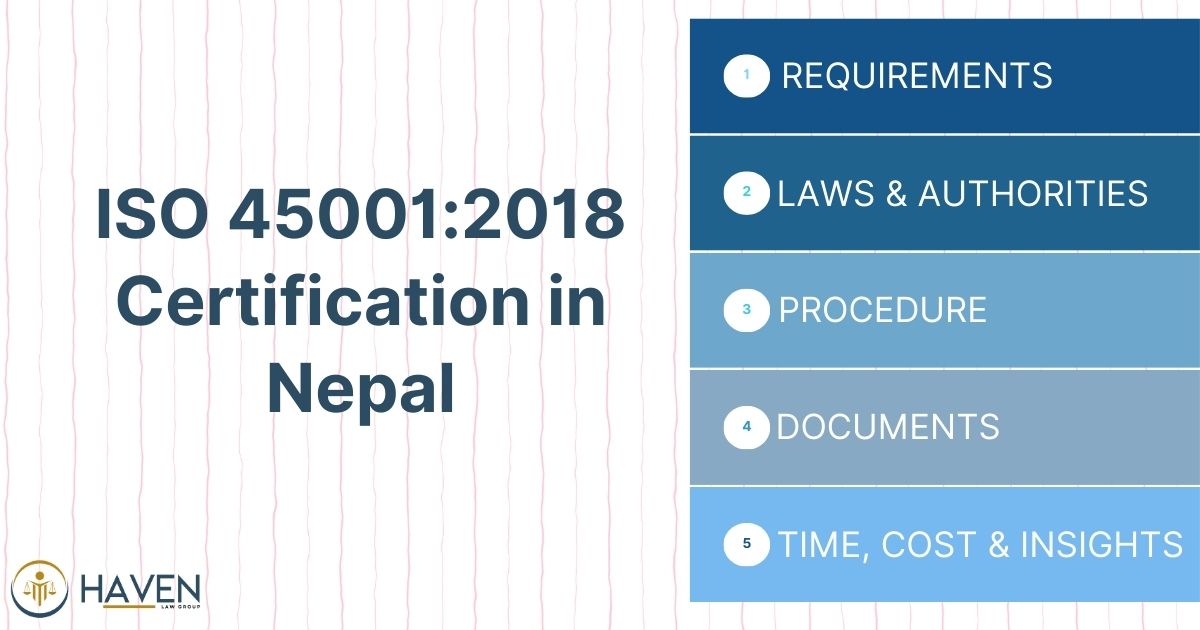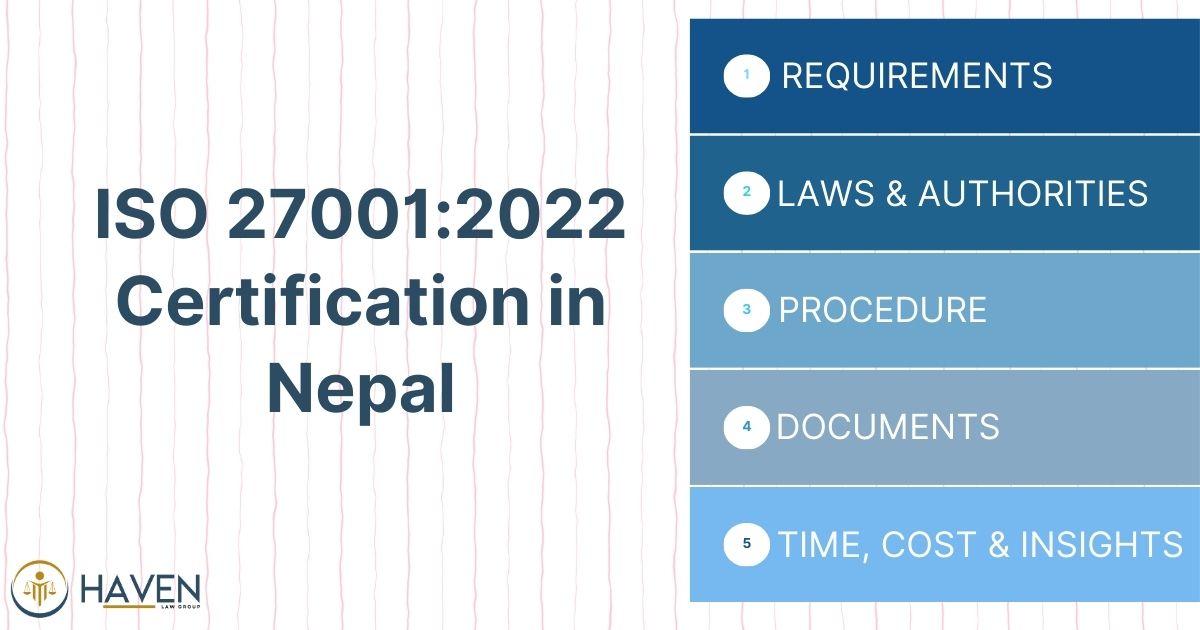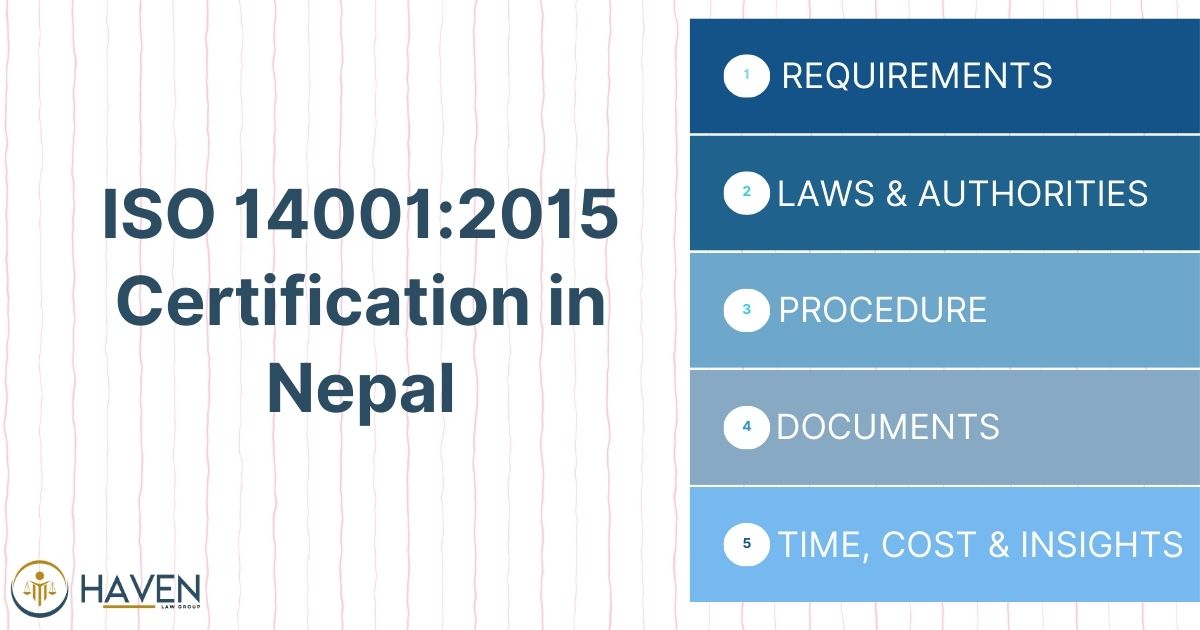Registering a private limited company in Nepal is a structured process that requires careful planning and adherence to legal requirements. This article provides a comprehensive guide on the registration process, outlining the necessary steps, documents, and legal considerations. Understanding these aspects is essential for entrepreneurs and business owners looking to establish a private limited company in Nepal.
What is a Private Limited Company?
A private limited company in Nepal is a business entity where the liability of shareholders is limited to their investment in the company. It is governed by the Companies Act, 2063 (2006). This type of company offers a separate legal identity from its owners, providing protection for personal assets. Private limited companies in Nepal can have a minimum of one and a maximum of 101 shareholders. They are prohibited from inviting the public to subscribe to their shares or debentures, maintaining a private ownership structure.
Benefits of Registering a Private Limited Company
Registering a private limited company in Nepal offers several advantages:
- Limited Liability: Shareholders’ personal assets are protected from company debts.
- Separate Legal Entity: The company can own property, sue, and be sued in its own name.
- Perpetual Succession: The company continues to exist regardless of changes in ownership.
- Easier Access to Capital: Banks and investors often prefer lending to registered companies.
- Professional Image: Registered companies are perceived as more credible and trustworthy.
- Tax Benefits: Certain tax advantages are available to private limited companies.
- Transferability of Shares: Ownership can be transferred through share sales.
Key Requirements for Registration
To register a private limited company in Nepal, the following key requirements must be met:
- Company Name: A unique name that is not already registered or similar to existing companies.
- Shareholders: At least one shareholder, with a maximum of 101.
- Directors: Minimum one director, who can also be a shareholder.
- Registered Office: A physical address in Nepal for official correspondence.
- Memorandum of Association: A document outlining the company’s objectives and activities.
- Articles of Association: Rules governing the internal management of the company.
- Capital Structure: Details of authorized, issued, and paid-up capital.
- Nepali Citizenship: At least one director must be a Nepali citizen.
- PAN Registration: Obtaining a Permanent Account Number for tax purposes.
Documents Required for Registration
The following documents are necessary for registering a private limited company in Nepal:
- Memorandum of Association
- Articles of Association
- Copy of citizenship certificates of promoters and directors
- Passport-sized photographs of promoters and directors
- No Objection Letter from the concerned department (if applicable)
- Proof of registered office address
- Bank deposit slip for share capital
- PAN registration certificate
- Board resolution for company formation
- Power of attorney (if applicable)
- Lease agreement for office space
- Specimen signatures of directors
- Declaration of compliance with Companies Act
Step-by-Step Registration Process
- Name Reservation:
- Submit proposed company names to the Office of Company Registrar (OCR)
- Obtain approval for the chosen name
- Document Preparation:
- Draft Memorandum and Articles of Association
- Prepare other required documents
- Capital Deposit:
- Open a bank account in the company’s name
- Deposit the initial share capital
- Submission of Documents:
- Submit all required documents to the OCR
- Pay the registration fees
- Document Verification:
- OCR reviews and verifies submitted documents
- Requests additional information if necessary
- Registration Approval:
- OCR issues the Certificate of Incorporation
- Assigns a company registration number
- Post-Registration Formalities:
- Obtain PAN from Inland Revenue Department
- Register for VAT (if applicable)
- Obtain other necessary licenses and permits
Role of the Registrar of Companies
The Office of Company Registrar (OCR) plays a crucial role in the registration process:
- Name Approval: Verifies and approves proposed company names.
- Document Verification: Reviews all submitted documents for compliance.
- Registration: Issues the Certificate of Incorporation upon approval.
- Record Keeping: Maintains official records of registered companies.
- Regulatory Oversight: Ensures companies comply with the Companies Act.
- Public Information: Provides company information to the public upon request.
- Annual Returns: Receives and processes annual returns from companies.
- Amendments: Processes changes in company structure or details.
Compliance and Regulatory Obligations
After registration, private limited companies in Nepal must adhere to various compliance requirements:
- Annual General Meeting: Hold an AGM within six months of the fiscal year-end.
- Annual Returns: File annual returns with the OCR within 30 days of the AGM.
- Financial Statements: Prepare and submit audited financial statements annually.
- Tax Compliance: File tax returns and pay applicable taxes.
- Board Meetings: Conduct regular board meetings and maintain minutes.
- Statutory Registers: Maintain registers of shareholders, directors, and other statutory records.
- Company Seal: Use the company seal on official documents.
- Change Notifications: Inform OCR of any changes in company structure or details.
- Compliance with Labor Laws: Adhere to labor regulations if employing staff.
- Environmental Compliance: Follow environmental regulations if applicable to the business.
Estimated Time for Registration
The time required to register a private limited company in Nepal can vary depending on several factors:
- Document Preparation: 1-2 weeks
- Name Approval: 2-3 working days
- Document Submission and Verification: 1-2 weeks
- Registration Approval: 3-5 working days
- Post-Registration Formalities: 1-2 weeks
The entire process typically takes 3-6 weeks, assuming all documents are in order and there are no complications. Factors that can affect the timeline include the completeness of submitted documents, the workload of the OCR, and any additional requirements specific to the company’s nature of business.
Cost Breakdown of Registration
The costs associated with registering a private limited company in Nepal include:
- Name Reservation Fee: NPR 100
- Registration Fee: Based on authorized capital (e.g., NPR 9,500 for capital up to NPR 1 million)
- Stamp Duty: 0.5% of authorized capital
- Legal and Professional Fees: Varies (typically NPR 20,000 – 50,000)
- Notary Charges: Approximately NPR 500 – 1,000
- PAN Registration: NPR 200
- Bank Account Opening: Minimal or no cost
- Company Seal: NPR 500 – 1,000
- Printing of Share Certificates: NPR 1,000 – 2,000
- Miscellaneous Expenses: NPR 2,000 – 5,000
Government Fees and Charges
The government fees for registering a private limited company in Nepal are structured as follows:
- Registration Fee:
- Up to NPR 1 million capital: NPR 9,500
- NPR 1-5 million capital: NPR 16,000
- NPR 5-10 million capital: NPR 28,000
- NPR 10-20 million capital: NPR 40,000
- NPR 20-30 million capital: NPR 52,000
- Above NPR 30 million capital: NPR 64,000
- Stamp Duty: 0.5% of authorized capital
- Name Reservation Fee: NPR 100
- PAN Registration: NPR 200
- Annual Return Filing Fee: NPR 500
These fees are subject to change, and it’s advisable to verify the current rates with the OCR or a legal professional.
Checklist for Successful Registration
To ensure a smooth registration process, use this checklist:
- Finalize company name and obtain approval
- Prepare Memorandum and Articles of Association
- Gather citizenship certificates and photos of promoters/directors
- Secure proof of registered office address
- Open bank account and deposit share capital
- Obtain PAN registration
- Draft board resolution for company formation
- Prepare power of attorney (if required)
- Arrange lease agreement for office space
- Collect specimen signatures of directors
- Prepare declaration of compliance
- Compile all documents in the required format
- Pay registration fees and stamp duty
- Submit complete application to OCR
- Follow up on application status
- Collect Certificate of Incorporation
- Complete post-registration formalities
Relevant Laws and Regulations
The registration and operation of private limited companies in Nepal are governed by several laws and regulations:
- Companies Act, 2063 (2006): Primary legislation governing company formation and operation.
- Income Tax Act, 2058 (2002): Regulates taxation of companies.
- Value Added Tax Act, 2052 (1996): Applies to companies with taxable transactions.
- Labor Act, 2074 (2017): Governs employment relationships and worker rights.
- Industrial Enterprises Act, 2076 (2020): Applies to manufacturing and industrial companies.
- Foreign Investment and Technology Transfer Act, 2075 (2019): Relevant for companies with foreign investment.
- Electricity Act, 2049 (1992): Applicable to companies in the energy sector.
- Nepal Rastra Bank Act, 2058 (2002): Relevant for financial institutions.
- Electronic Transactions Act, 2063 (2006): Governs electronic commerce and digital signatures.
- Environment Protection Act, 2076 (2019): Applies to companies with environmental impact.
Post-Registration Compliance Essentials
After successfully registering a private limited company, several post-registration compliance tasks are essential:
- Obtain PAN and VAT registration (if applicable)
- Set up proper accounting and bookkeeping systems
- Appoint an auditor for annual audits
- Conduct the first board meeting and document minutes
- Issue share certificates to shareholders
- Set up statutory registers (shareholders, directors, etc.)
- Obtain necessary business licenses and permits
- Register with the Social Security Fund (if employing staff)
- Implement proper corporate governance practices
- Establish internal policies and procedures
- Set up a system for regular compliance monitoring
- Plan for the first Annual General Meeting
- Prepare for timely filing of annual returns and tax documents
- Ensure proper use of the company seal on official documents
- Maintain clear communication channels with shareholders and directors
FAQs
Can I register it online?
Currently, the complete online registration of a private limited company is not available in Nepal. However, some initial steps, such as name reservation, can be done online through the OCR website. The full registration process still requires physical submission of documents to the OCR office.
How many directors are required?
A private limited company in Nepal requires a minimum of one director. There is no maximum limit on the number of directors. However, at least one director must be a Nepali citizen if the company has foreign shareholders.
What is the minimum capital requirement?
There is no specific minimum capital requirement for registering a private limited company in Nepal. However, the authorized capital must be stated in the Memorandum of Association, and the company should have sufficient capital to carry out its intended business activities.
Is registration mandatory for all businesses?
Registration is mandatory for businesses operating as private limited companies in Nepal. However, sole proprietorships and partnerships can operate without company registration, though they may need to register with local authorities or obtain specific licenses depending on their nature of business.
Can foreigners register a private limited company?
Yes, foreigners can register a private limited company in Nepal. However, certain sectors have restrictions on foreign investment, and approval from the Department of Industry may be required. Additionally, at least one director of the company must be a Nepali citizen if there are foreign shareholders.

